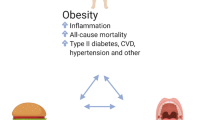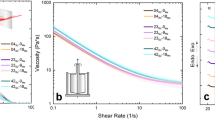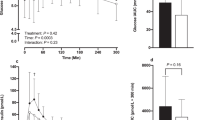Abstract
Objectives: The preferences for high-fat foods are believed to be based on their sensory attributes and energy density; however less is known about how such preferences might be weakened, other than in response to deterioration in flavor or textural quality. The aim of the present study was to see whether acceptability of reduced fat/energy foods would wane as the original post-ingestive nutritional benefits are reduced when palatability remains essentially constant.
Design: Repeated measures, within-subjects design conducted in two counterbalanced three week trials.
Setting/Subjects: Sixteen normal-weight males (mean age 25.8±1.2 y) came to our laboratory at the Hôpital Hôtel Dieu in Paris to eat an afternoon snack on 13 consecutive days (excluding weekends).
Intervention/Outcome Measures: Intake was recorded following repeated exposure to two flavors of standard (10% fat as a percentage of total solids weight), and low (3%) fat ice cream. One group received standard vanilla or low-fat strawberry ice cream on alternate days for two consecutive weeks; these flavor associations were reversed for a second group. The two flavors were rated as equipalatable at the beginning of the experiment at all energy levels.
Results: Subjects consumed the same quantity of ice cream throughout the experimental period, independent of energy density or flavor. Consequently, aggregate (summed) energy intake for subjects consuming low-fat ice cream was significantly lower (by 581 kJ (139 kcal), 15.4 g fat). Food intake records for the 24 h period immediately following the test sessions revealed no compensation for fat or energy. Despite the 28% reduction in energy density for the low-fat version, acceptance for the flavors associated with the reduced-energy versions had not declined by the end of the experimental period.
Conclusions: The findings suggest that acceptance of reduced-fat foods may not be critically dependent on the post-ingestive metabolic effects when the reductions in energy density are small. Further tests with more severe reductions, and perhaps over more prolonged time periods, will be necessary to determine at what level of substitution acceptance might begin to deteriorate.
Sponsorship: Financed by a research grant from the Nutrition Health Service, Eridania Béghin-Say, Belgium.
This is a preview of subscription content, access via your institution
Access options
Subscribe to this journal
Receive 12 print issues and online access
$259.00 per year
only $21.58 per issue
Buy this article
- Purchase on Springer Link
- Instant access to full article PDF
Prices may be subject to local taxes which are calculated during checkout
Similar content being viewed by others
Author information
Authors and Affiliations
Rights and permissions
About this article
Cite this article
Specter, S., Bellisle, F., Hémery-Véron, S. et al. Reducing ice cream energy density does not condition decreased acceptance or engender compensation following repeated exposure. Eur J Clin Nutr 52, 703–710 (1998). https://doi.org/10.1038/sj.ejcn.1600627
Received:
Revised:
Accepted:
Published:
Issue Date:
DOI: https://doi.org/10.1038/sj.ejcn.1600627
Keywords
This article is cited by
-
Learning about the energy density of liquid and semi-solid foods
International Journal of Obesity (2012)
-
Chronologically scheduled snacking with high-protein products within the habitual diet in type-2 diabetes patients leads to a fat mass loss: a longitudinal study
Nutrition Journal (2011)



